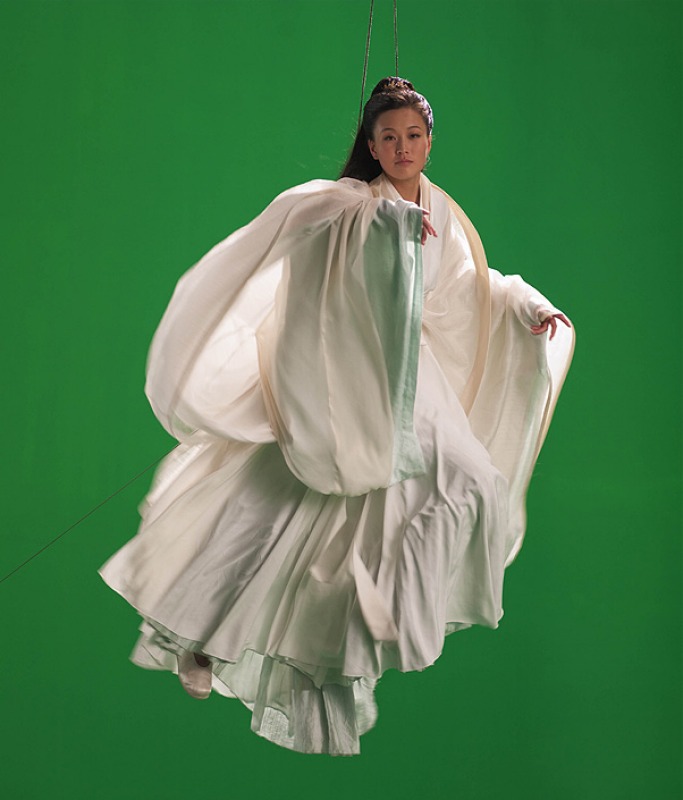Isaac Julien
London UK , lives and works in London
Better Life (Ten Thousand Waves)
2010
single screen video projection with audio
dimensions variable
2012.IsJ.01
Isaac Julien’s Better Life (Ten Thousand Waves) is the haunting single-screen version of the nine-channel installation Ten Thousand Waves, which premiered at the 17th Biennale of Sydney in 2010. The film poetically weaves together rich imagery of the cold northwest coast of England, the bustling rush hour of Shanghai, and the lush landscape of rural China.
The original inspiration for Ten Thousand Waves was the Morecambe Bay tragedy of 2004, in which over 20 Chinese cockle-pickers died in Northern England. In response to this event, Julien commissioned the poet Wang Ping to write Small Boats a poem that is recited in the film. In successive years, Julien has spent time in China slowly coming to understand the country and developing relationships that have enabled him to undertake the rich and multifaceted work. Through conversations with academics, curators and artists, Julien uncovered a symbolic body of material to create a work that explores modern and traditional Chinese values and superstitions. These are encapsulated in a fable from Fujian Proviince (where the Morecambe Bay cockle-pickers originated) which relates the story of sixteenth-century fishermen lost and in danger at sea. At the heart of the legend is the goddess figure who leads the fishermen to safety.
Following ideas surrounding death, spiritual displacement and the uniquely Chinese connection with “ghosts” or “lost souls”, the works link the Shanghai of the past and present, symbolising the Chinese transition towards modernity, aspiration and affluence. Julien employs the visual language of ghost stories, with recurrent figures and images appearing and disappearing. Mazu’s spectral figure traverses time and space, serving as a guide through the interlocking strands of the work. Mirroring the goddess of the fable, a ghostly protagonist (Zhao Tao) leads us through the world of Shanghai cinema to a restaging by Julien of scenes from the classic Chinese film The Goddess (1934), and finally to the streets of Modern and Old Shanghai.
